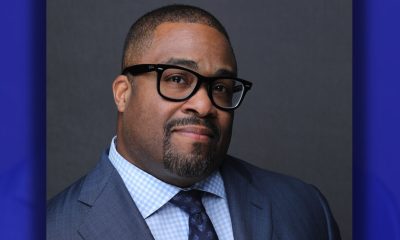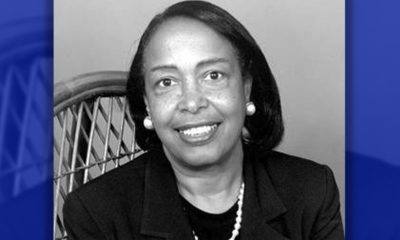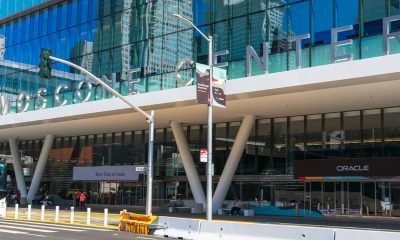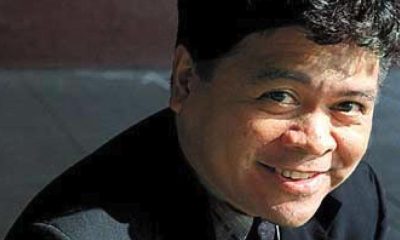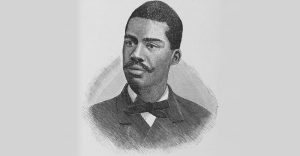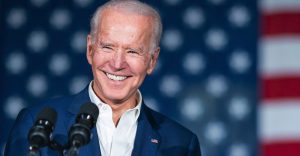Politics
Obama, Abe Putting Joint Face on Trade Amid Opposition in US

President Barack Obama hosts a state arrival ceremony for Japanese Prime Minister Shinzo Abe, Tuesday, April 28, 2015, on the South Lawn of the White House in Washington. (AP Photo/Jacquelyn Martin)
JIM KUHNHENN, Associated Press
WASHINGTON (AP) — Eager to build on the U.S.-Japan alliance, President Obama and Japanese Prime Minister Shinzo Abe will work to strengthen economic ties while confronting stiff resistance from Obama’s own political party to a massive new Pacific Rim trade deal.
Trade is one of the top agenda items for Abe’s state visit to the U.S. as the two countries work toward a 12-nation Trans-Pacific Partnership agreement that would further open vast Asian and Pacific rim markets to U.S. exports.
Abe’s visit comes as Obama’s negotiators work to complete the trade agreement, and as Obama seeks authority from Congress to put the deal, once it’s completed, on a fast track to approval later this year. Obama is pressing for the trade agreement and the negotiating authority against mounting pressure from liberals and labor unions who fear trade agreements can cost American jobs.
The U.S. and Japan are the agreement’s biggest participants and the talks between the two countries would go far in advancing the broader negotiations. But while Obama and Abe won’t be ready to announce a trade breakthrough, officials on both sides say they will likely declare they have made considerable progress in closing remaining gaps. The toughest sticking points are U.S. tariffs on Japanese pickup trucks and barriers in Japan on certain U.S. agricultural products.
Ahead of Tuesday’s meeting and the pomp and circumstance of a state visit, Obama took Abe to the Lincoln Memorial Monday afternoon. Obama played tour guide, leading the Japanese leader up the steps into the memorial where they examined the Gettysburg Address sketched into the marble walls.
Also on Monday, Japanese and U.S. foreign and defense ministers meeting in New York approved revisions to the U.S.-Japan defense guidelines. The new rules boost Japan’s military capability amid growing Chinese assertiveness in disputed areas in the East and South China Sea claimed by Beijing. The changes, which strengthen Japan’s role in missile defense, mine sweeping and ship inspections, are the first revisions in 18 years to the rules that govern U.S.-Japan defense cooperation.
Indeed, China’s economic and military footprint serves as a major backdrop for Abe’s visit.
Obama has undertaken an effort to rebalance the U.S. role in Asia and has argued time and again that without a trade agreement with Asian countries, China will step into the breach.
“If we don’t write the rules, China will write the rules out in that region,” Obama said in an interview with The Wall Street Journal. “We will be shut out — American businesses, American agriculture. That will mean a loss of U.S. jobs.”
Abe is sure to get a flavor of the opposition Obama confronts from Democrats and from the political left. He will address a joint meeting of Congress on Wednesday, and a coalition of trade deal critics plan to place a giant Trojan Horse, symbolizing the fast-track authority Obama seeks, well within view of his motorcade.
Likewise, Republican supporters of the trade deal were applying pressure on Abe. In an opinion piece in The Washington Post, House Ways and Means Committee Chairman Paul Ryan urged Abe to stand up to the Japanese farms and auto lobbies in favor of more open trade.
Educated at the University of Southern California, Abe will be the first Japanese leader to address both houses of Congress. He intends to deliver his remarks in English.
Abe’s visit comes on the 70th anniversary of the end of World War II and has already prompted demands that he use his trip to address the use of sex slaves by the Imperial Army during the war. The issue has been a major irritant with South Korea, which has demanded an apology from Abe.
Nothing seemed to underscore the reconciliation between the countries more than the agreement to boost the U.S.-Japan defense relationship, which would allow Japan to play a bigger role in global military operations with an eye on potential threats from China and North Korea.
Secretary of State John Kerry said the shift marks a historic transformation in the post-WWII relationship between Tokyo and Washington that recognizes the “evolving risks and dangers both in Asia-Pacific and across the globe.”
Japanese Foreign Minister Fumio Kishida agreed, saying “the security situation around Japan is becoming more harsh and difficult.”
The revisions come with a renewed pledge of the U.S. position that the Senkaku Islands — a group of small, uninhabited islands in the East China Sea — fall under Japanese administration and are within the scope of the U.S.-Japan mutual defense treaty. China also claims the islands, which Beijing calls Diaoyu.
China on Tuesday reiterated its claim on the islands.
“No matter what anybody says or does, the fact won’t change that the Diaoyu Islands belong to China,” Chinese Foreign Ministry spokesman Hong Lei said. “The Chinese government will firmly defend the country’s territorial sovereignty and integrity.”
In his interview Monday, Obama tried not to portray the U.S. as an antagonist to China but said, “We don’t want China to use its size to muscle other countries in the region around rules that disadvantage us.”
Activism
Oakland Post: Week of May 8 – 14, 2024
The printed Weekly Edition of the Oakland Post: Week of May May 8 – 14, 2024
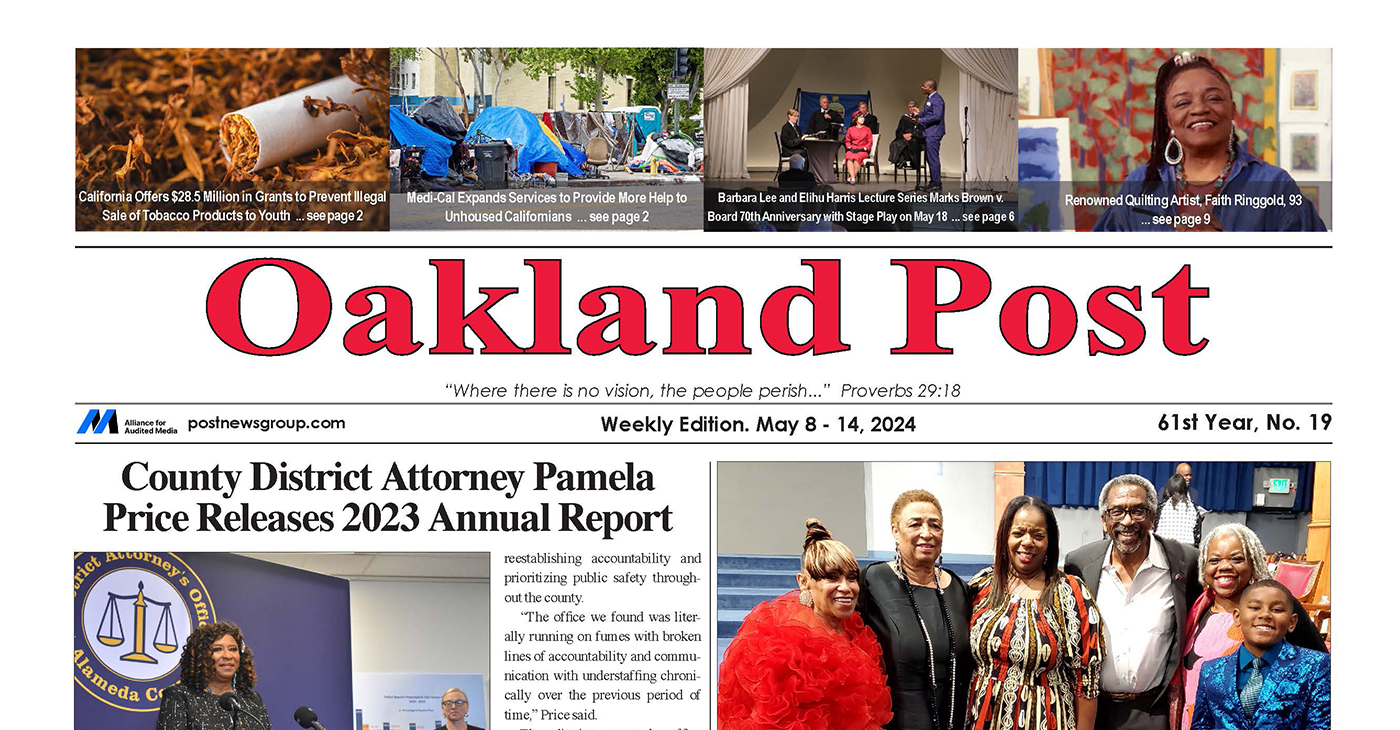
To enlarge your view of this issue, use the slider, magnifying glass icon or full page icon in the lower right corner of the browser window. ![]()
Activism
S.F. Black Leaders Rally to Protest, Discuss ‘Epidemic’ of Racial Slurs Against Black Students in SF Public School System
Parents at the meeting spoke of their children as no longer feeling safe in school because of bullying and discrimination. Parents also said that reported incidents such as racial slurs and intimidation are not dealt with to their satisfaction and feel ignored.

By Carla Thomas
San Francisco’s Third Baptist Church hosted a rally and meeting Sunday to discuss hatred toward African American students of the San Francisco Unified School District (SFUSD).
Rev. Amos C. Brown, president of the San Francisco NAACP and pastor of Third Baptist Church, along with leadership from local civil rights groups, the city’s faith-based community and Black community leadership convened at the church.
“There has been an epidemic of racial slurs and mistreatment of Black children in our public schools in the city,” said Brown. “This will not be tolerated.”
According to civil rights advocate Mattie Scott, students from elementary to high school have reported an extraordinary amount of racial slurs directed at them.
“There is a surge of overt racism in the schools, and our children should not be subjected to this,” said Scott. “Students are in school to learn, develop, and grow, not be hated on,” said Scott. “The parents of the children feel they have not received the support necessary to protect their children.”
Attendees were briefed last Friday in a meeting with SFUSD Superintendent Dr. Matt Wayne.
SFUSD states that their policies protect children and they are not at liberty to publicly discuss the issues to protect the children’s privacy.
Parents at the meeting spoke of their children as no longer feeling safe in school because of bullying and discrimination. Parents also said that reported incidents such as racial slurs and intimidation are not dealt with to their satisfaction and feel ignored.
Some parents said they have removed their students from school while other parents and community leaders called on the removal of the SFUSD superintendent, the firing of certain school principals and the need for more supportive school board members.
Community advocates discussed boycotting the schools and creating Freedom Schools led by Black leaders and educators, reassuring parents that their child’s wellbeing and education are the highest priority and youth are not to be disrupted by racism or policies that don’t support them.
Virginia Marshall, chair of the San Francisco NAACP’s education committee, offered encouragement to the parents and students in attendance while also announcing an upcoming May 14 school board meeting to demand accountability over their mistreatment.
“I’m urging anyone that cares about our students to pack the May 14 school board meeting,” said Marshall.
This resource was supported in whole or in part by funding provided by the State of California, administered by the California State Library via California Black Media as part of the Stop the Hate Program. The program is supported by partnership with California Department of Social Services and the California Commission on Asian and Pacific Islander American Affairs as part of the Stop the Hate program. To report a hate incident or hate crime and get support, go to CA vs Hate.
Alameda County
Board of Supervisors Accepts Certification of Signatures, Will Schedule Recall Election May 14
The Alameda Board of Supervisors unanimously accepted the certification of the results of the valid signatures submitted for the recall of District Attorney Pamela Price on Tuesday evening. The Board will set the election date at a special meeting on May 14. Before the meeting, recall proponents and opponents held separate press conferences to plead their cases to the Board and residents of Alameda County.
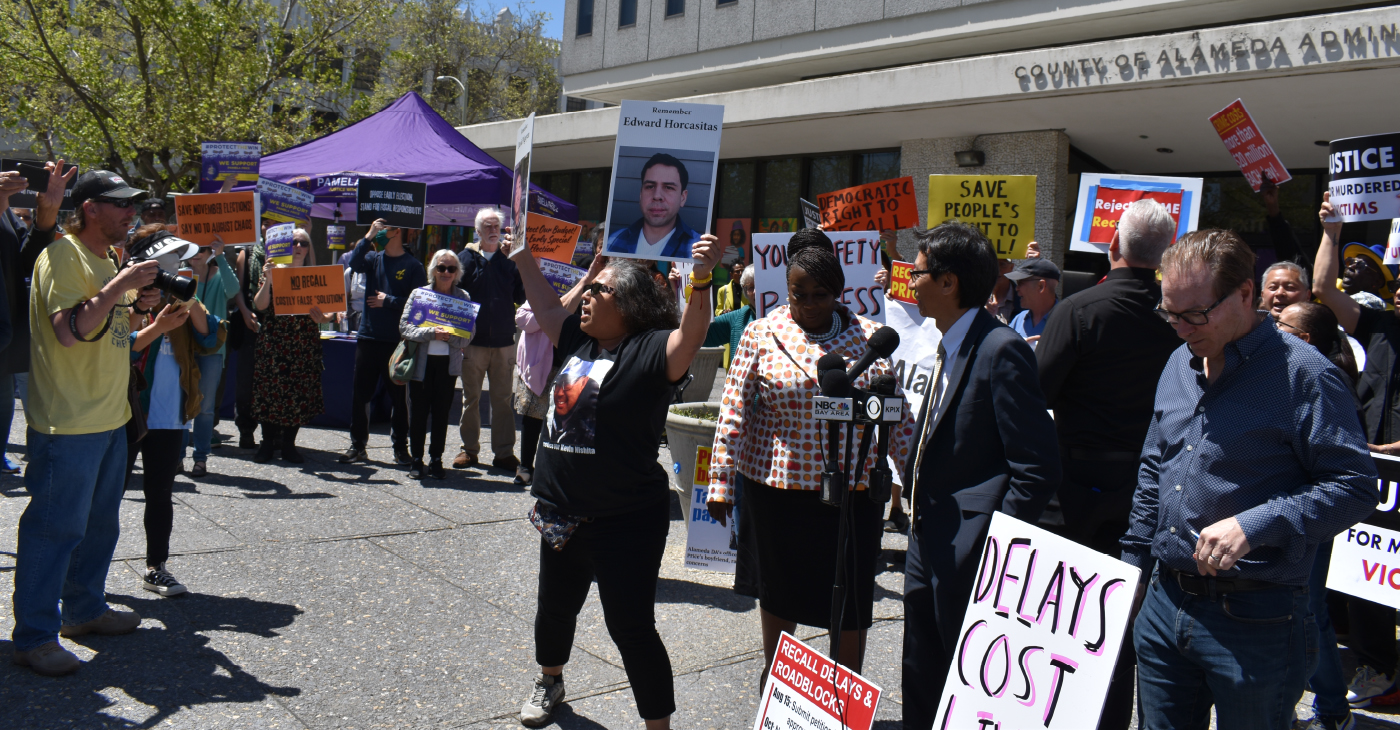
By Magaly Muñoz
The Alameda Board of Supervisors unanimously accepted the certification of the results of the valid signatures submitted for the recall of District Attorney Pamela Price on Tuesday evening. The Board will set the election date at a special meeting on May 14.
Before the meeting, recall proponents and opponents held separate press conferences to plead their cases to the Board and residents of Alameda County.
Price, who up until this point has made little public comment about the recall, held her press conference in Jack London to announce that the California Fair Political Practices Commission has opened an investigation into the finances of the Save Alameda For Everyone (SAFE) recall campaign.
The political action committee (PAC), Reviving the Bay Area, has been the largest contributor to the SAFE organization and has allegedly donated over half a million dollars to the recall efforts.
“Between September 2023 and November 2023, [Revive the Bay Area] donated approximately $578,000 to SAFE without complying with the laws that govern all political committees in California,” Price said.
Price accused the recall campaigns of using irregular signature-gathering processes, such as paying gatherers per signature, and using misleading information to get people to sign their petitions.
SAFE held their own press conference outside of the Alameda County Administration Building at 1221 Oak St. in Oakland, once again calling for the Board to certify their signatures and set a date for the recall election.
Their press conference turned contentious quickly as Price’s “Protect the Win” supporters attempted to yell over the SAFE staff and volunteers. “Stop scapegoating Price” and “Recall Price” chants went on for several moments at a time during this event.
Families of victims urged the Board to think of their loved ones whose lives are worth much more than the millions of dollars that many opponents of the recall say is too much to spend on a special election.
The Registrar of Voters (ROV) estimates the special election could cost anywhere from $15 to $20 million, an amount that is not in their budget.
The Board was presented with several options on when and how to conduct the recall election. They have to set a date no less than 88 days or more than 125 days after May 14, meaning the date could fall anywhere from late July to September.
But the County charter also states that if a general election takes place within 180 days of their scheduling deadline, the Board could choose to use the November ballot as a way to consolidate the two events.
In the event that Price is recalled, the Supervisors would appoint someone to fill the vacancy, though neither the County nor the California charter specifies how long they would have to pick a replacement.
The appointee would serve as district attorney spot until the next election in 2026. Afterwards, either they, if they run and win, or a newly elected candidate would serve the rest of Price’s six-year term until 2029. Price is unique as the only district attorney wo serves a term of six years.
The Board acknowledged that they knew last fall that this recall would come with its own set of complications when Measure B, which changed the local recall charter to match California’s, was first brought to their consideration.
Supervisors Nate Miley and David Haubert opposed discussing the measure, stating that the public would think that the Board was attempting to influence the recall campaign that had already taken off months prior.
“I think ultimately this feels like it’s going to end up in court, one way or the other, depending on who files what,” Haubert said.
Price’s legal team told the Post that the district attorney intended to consider all legal options should the recall election take place.
Miley stated that while he was in support of the amendment to the charter, he did not think it was right to schedule it for the March ballot as it would ultimately cause confusion for everyone involved.
“It has produced some legal entanglements that I think, potentially, could’ve been avoided,” Miley said.
-

 City Government2 weeks ago
City Government2 weeks agoCourt Throws Out Law That Allowed Californians to Build Duplexes, Triplexes and RDUs on Their Properties
-

 Community4 weeks ago
Community4 weeks agoFinancial Assistance Bill for Descendants of Enslaved Persons to Help Them Purchase, Own, or Maintain a Home
-

 Activism3 weeks ago
Activism3 weeks agoOakland Post: Week of April 24 – 30, 2024
-

 Community4 weeks ago
Community4 weeks agoOakland WNBA Player to be Inducted Into Hall of Fame
-

 Community4 weeks ago
Community4 weeks agoRichmond Nonprofit Helps Ex-Felons Get Back on Their Feet
-

 Community4 weeks ago
Community4 weeks agoRPAL to Rename Technology Center for Retired Police Captain Arthur Lee Johnson
-
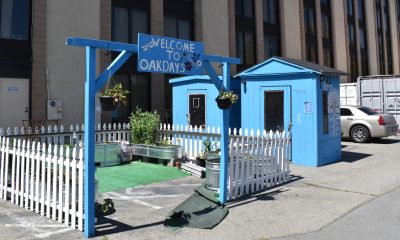
 Alameda County2 weeks ago
Alameda County2 weeks agoAn Oakland Homeless Shelter Is Showing How a Housing and Healthcare First Approach Can Work: Part 1
-

 Business4 weeks ago
Business4 weeks agoBlack Business Summit Focuses on Equity, Access and Data


